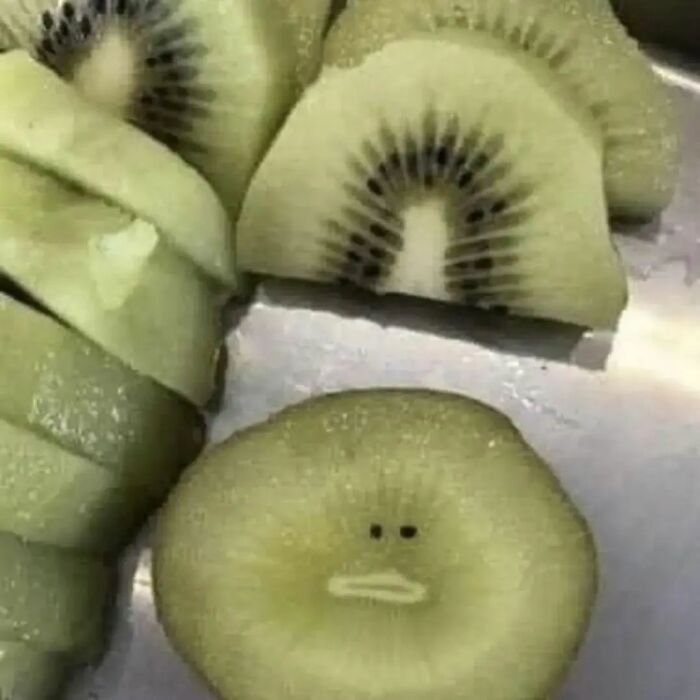
IG Account Posts Pics So Adorable, It’s Basically The Opposite Of Doom Scrolling (30 Pics)
Oxford’s word of the year for 2024 is ‘brain rot’, defined as “the supposed deterioration of a person’s mental or intellectual state, especially viewed as the result of overconsumption of material (now particularly online content) considered to be trivial or unchallenging.”
It’s both refreshing and rewarding, then, when you find a place on the internet that stops your doom scrolling in its tracks and makes your thumb quit swiping for longer than a New York minute. The IG account @IWantToStay.Ok is one such destination, dedicated to posting pics that are altogether cute, strange, and nostalgic. Here’s a collection of our favorites.
More info: Instagram
This post may include affiliate links.
With the advent of the internet, smartphones, and social media, it’s no surprise that our attention spans are not what they used to be - our relationship with technology is evolving at breakneck pace. A new Pew Research Center report reveals that nearly half of US teenagers are online “constantly,” despite growing concerns about the effects of social media and smartphones on their mental health.
Countries like Australia have introduced laws to limit social media use among teens, reflecting ongoing concerns about the impact of these platforms on young people’s well-being. But it’s not just teens who are addicted to their smartphones - it’s pretty much all of us.
In his book, Digital Madness, psychologist Nicholas Kardaras reveals that the people driving Instagram, Facebook, TikTok, and most other social media not only designed their platforms to be astonishingly addictive, but have kept them that way despite mountains of evidence that social media overuse has an appalling effect on users’ mental and physical well-being.
In The Chaos Machine, New York Times reporter Max Fisher explains, “Dopamine creates a positive association with whatever behaviors prompted its release, training you to repeat them.”
Fisher goes on, “When that dopamine reward system gets hijacked, it can compel you to repeat self-destructive behaviors. To place one more bet, binge on alcohol—or spend hours on apps even when they make you unhappy.”
Throw your hooves in the air and wave em around like you just don't care
In her article for the BBC, Hilary Andersson writes that, in 2006, former Mozilla and Jawbone employee and leading technology engineer, Aza Raskin, designed ‘infinite scroll’, which allows users to endlessly swipe down through content without clicking. It’s one of the features of many apps that is now seen as highly habit forming.
"If you don't give your brain time to catch up with your impulses," Mr. Raskin said, "you just keep scrolling." Raskin said the innovation kept users looking at their phones far longer than necessary.
"In order to get the next round of funding, in order to get your stock price up, the amount of time that people spend on your app has to go up," he said.
"So, when you put that much pressure on that one number, you're going to start trying to invent new ways of getting people to stay hooked."
In the BBC article mentioned above, Leah Pearlman, co-inventor of Facebook's Like button, said she had become addicted to Facebook because she had started basing her sense of self-worth on the number of "likes" she had.
"I noticed that I would post something that I used to post and the 'like' count would be way lower than it used to be. Suddenly, I thought I'm actually also kind of addicted to the feedback," she says.
In 2017, Facebook's founding president, Sean Parker, said publicly that the company set out to consume as much user time as possible. According to the BBC, he claimed it was "exploiting a vulnerability in human psychology". "The inventors," he said, "understood this consciously and we did it anyway."
With social media platforms wreaking havoc with our dopamine levels, is there any hope of escaping their clutches? Well, there are some folks dedicated to helping people with their problematic phone use.
Dr Anna Lembke, a world-leading expert on addiction and chief of Stanford University’s dual diagnosis addiction clinic, has spent the past 25-plus years treating patients for a variety of addictions.
Her new book, Dopamine Nation, stresses the fact that we are now all addicts to one degree or another. She labels the smartphone the “modern-day hypodermic needle”: we’re always ready to turn to it for quick hits in search of validation, attention, and distraction with each like, mention, and tweet.
Lembke says, “Our obsession with instant gratification means we’re constantly living in our limbic brain, which processes emotions, rather than in our prefrontal cortex, which deals with future planning and problem-solving and is important for personality development.”
“It’s very different from how life used to be, when we had to tolerate a lot more distress,” says Lembke. “We’re losing our capacity to delay gratification, solve problems and deal with frustration and pain in its many different forms.”
Of course, not all social media is out to destroy us. There’s plenty of wholesome, interesting, and brain-exploding content posted by people who strive to use these platforms for good. Just like @iwanttostay.ok.
Did you enjoy this list of images? Don’t forget to upvote your favorites and leave a comment before you get distracted!
The beginning of her iconic Sailor Moon performance ✨️. If you haven't seen it already, go watch it now!

 Dark Mode
Dark Mode 

 No fees, cancel anytime
No fees, cancel anytime 




















































































